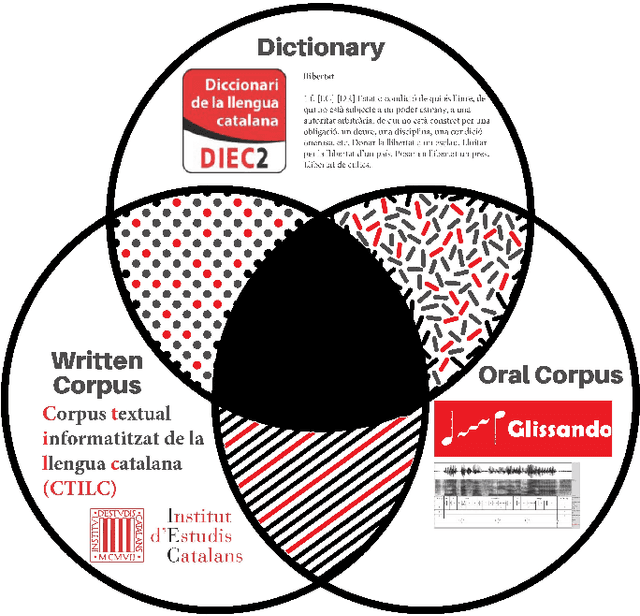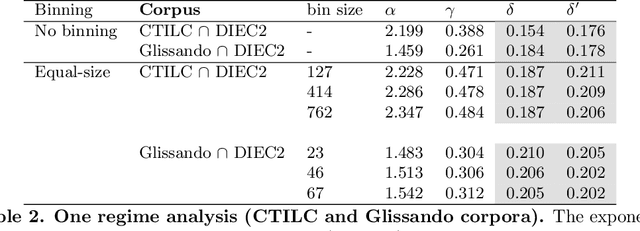Zipf's laws of meaning in Catalan
Paper and Code
Jun 30, 2021



In his pioneering research, G. K. Zipf formulated a couple of statistical laws on the relationship between the frequency of a word with its number of meanings: the law of meaning distribution, relating the frequency of a word and its frequency rank, and the meaning-frequency law, relating the frequency of a word with its number of meanings. Although these laws were formulated more than half a century ago, they have been only investigated in a few languages. Here we present the first study of these laws in Catalan. We verify these laws in Catalan via the relationship among their exponents and that of the rank-frequency law. We present a new protocol for the analysis of these Zipfian laws that can be extended to other languages. We report the first evidence of two marked regimes for these laws in written language and speech, paralleling the two regimes in Zipf's rank-frequency law in large multi-author corpora discovered in early 2000s. Finally, the implications of these two regimes will be discussed.
 Add to Chrome
Add to Chrome Add to Firefox
Add to Firefox Add to Edge
Add to Edge